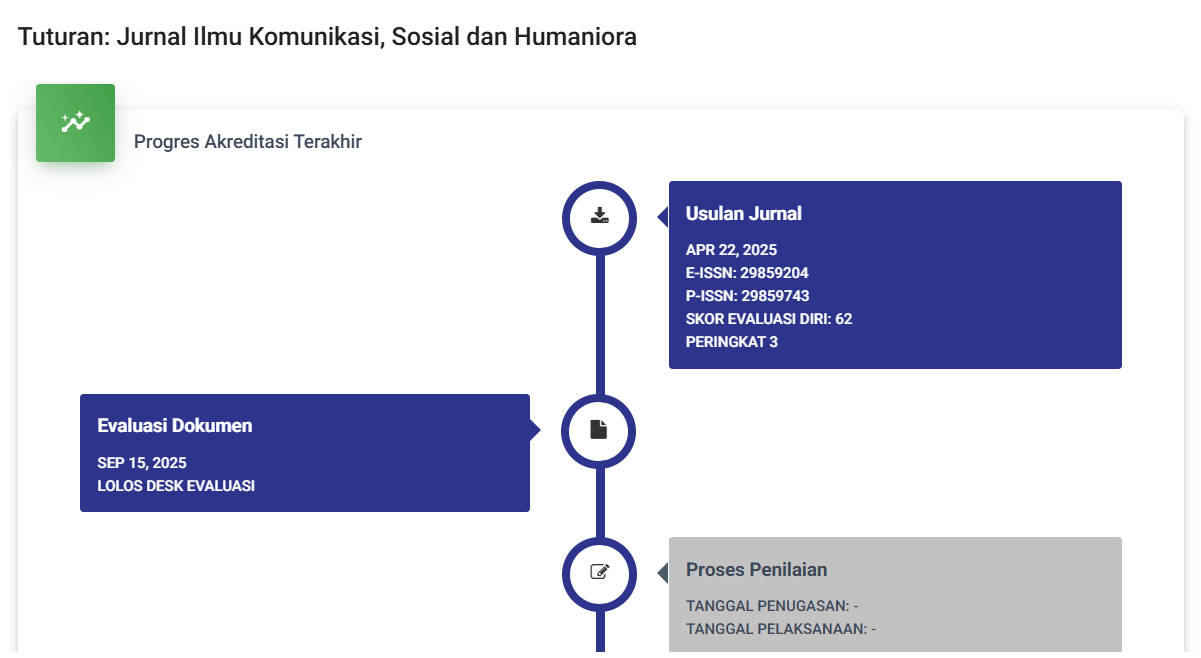Analisis Pengaruh Paparan Konten Negatif di Media Sosial Terhadap Kesehatan Mental Gen Z
DOI:
https://doi.org/10.47861/tuturan.v3i1.1418Keywords:
Social Media, Negative Content, Mental Health, Gen Z, IndonesiaAbstract
Social media has become an inseparable part of Gen Z's daily life. However, despite its benefits, exposure to negative content on social media can adversely affect mental health. This study aims to analyze the extent to which exposure to negative content influences Gen Z's mental health. The research employs a quantitative approach by surveying 300 respondents aged 18–25 in Indonesia. The findings reveal a significant correlation between exposure to negative content, such as cyberbullying, fake news, and body shaming, and higher levels of anxiety, depression, and stress. This article provides insights for policymakers and society to create a healthier social media ecosystem, emphasizing the importance of digital literacy, content moderation, and stricter regulations to mitigate harmful content exposure.
References
Anderson, M., & Jiang, J. (2018). "Teens, social media & technology 2018." Pew Research Center.
Boyd, D. (2014). It's Complicated: The Social Lives of Networked Teens.
Chou, H. T., & Edge, N. (2012). "They are happier and having better lives than I am: The impact of using Facebook on perceptions of others' lives." Cyberpsychology, Behavior, and Social Networking.
Kaplan, A. M., & Haenlein, M. (2010). "Users of the world, unite! The challenges and opportunities of social media." Business Horizons.
Kircaburun, K., et al. (2020). "The dark side of social media: Body image concerns." Cyberpsychology Journal.
Lenhart, A., et al. (2015). "Teens, technology, and friendships." Pew Research Center.
Livingstone, S. (2018). Media, Communication, and Information Technologies in Families.
Luxton, D. D., et al. (2012). "Social media and suicide: A public health perspective." American Journal of Public Health.
Patchin, J. W., & Hinduja, S. (2015). Bullying beyond the schoolyard: Preventing and responding to cyberbullying.
Prensky, M. (2010). Teaching Digital Natives: Partnering for Real Learning.
Salim, A. I. (2021). Media Sosial dan Mental Health di Kalangan Anak Muda.
Sutabri, T. (2012). Analisis Sistem Informasi, Yogyakarta: Andi Offset
Sutabri, T. (2012). Konsep Sistem Informasi, Yogyakarta: Andi Offset
Twenge, J. M., et al. (2022). "The association between screen time and mental health outcomes among adolescents." Journal of Adolescence.
Vosoughi, S., et al. (2018). "The spread of true and false news online." Science, 359(6380).
We Are Social. (2023). Digital 2023: Global Overview Report.
WHO. (2022). "Mental health: strengthening our response." World Health Organization.
Downloads
Published
How to Cite
Issue
Section
License
Copyright (c) 2024 TUTURAN: Jurnal Ilmu Komunikasi, Sosial dan Humaniora

This work is licensed under a Creative Commons Attribution 4.0 International License.








